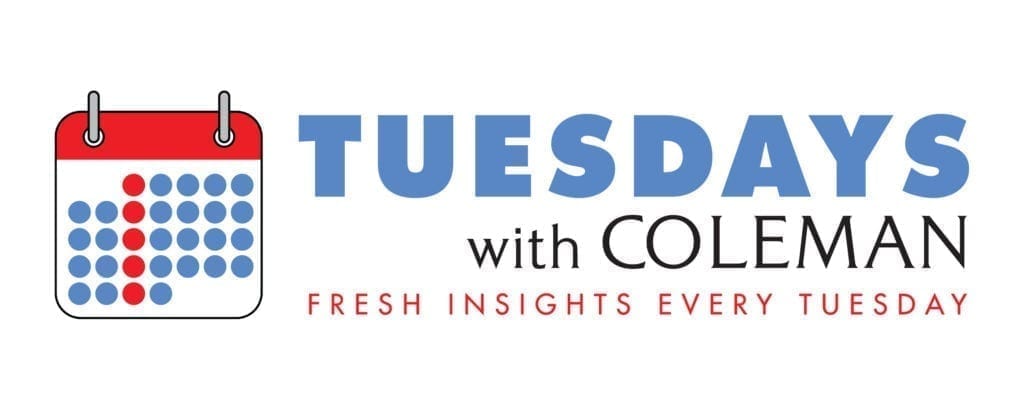
Michael O’Shea is the President and General Manager of Sonoma Media Group in Santa Rosa, California. Many years ago, he told me something about how radio stations attempt to impact ratings that has stuck with me to this day. I’ll paraphrase a bit.
There are two numbers in the ratings share of every station—the number to the left of the decimal (as in the 4 in a 4.3 share) and the number to the right of the decimal (as in the 3 in a 4.3 share). The number to the right is impacted by the things radio stations spend the vast majority of their time on. Tweaking the music. Adding or removing a talk break. Giving away concert tickets. These are the tactical things that may take a station from a 4.3 to a 4.5 or maybe a 4.7.
What moves the number to the left of the decimal point–that is, what gets your station to make big improvements in its ratings? Strengthening your brand. Major marketing. A big format debut. A morning personality crossing a threshold of impactful connection with the audience. Large, momentum-shifting, buzzworthy things. That’s how stations go from a 4.3 to a 5.3.
Recent history draws our attention to two momentum-shifting examples in politics. In 2016, Hillary Clinton had well-produced campaign ads, high-profile endorsements, and, seemingly, a victory well in hand. But it was Donald Trump’s ability to shift perception through consistent repetition that changed the momentum and the outcome of the race. He did not and could not have won if he had dealt with typical things candidates do; e.g., policy papers and carefully crafted messages to appeal to the voters in the middle.
More recently, few expected Joe Biden to emerge as the 2020 Democratic candidate. Again, it wasn’t a snappy ad or one-liner at a debate that changed the game. Biden utilized a groundswell of support in South Carolina to shift perception of his electability.
Rather than just managing the minutia, I’d like to see the radio industry focus on impacting the public conversation.
Is this more challenging than ever? Yes. Does ratings compaction, particularly in PPM markets, make impacting the number to the left of the decimal point even more difficult? Absolutely.
If I owned or managed a radio station today, I would hire a marketing specialist specifically charged with getting media coverage. I’d make it a mission that my morning show would be such market authorities on pop culture and music that other media outlets would look to it for leadership. Last Friday morning, Charlamagne Tha God from The Breakfast Club, the morning show based at Power 105.1 in New York, interviewed Joe Biden. As usual, the show posted the interview on social media (The Breakfast Club has 4.4 million YouTube subscribers) and on its podcast. Towards the end of the interview, Biden says, “If you have a problem figuring out whether you’re for me or Trump, then you ain’t black.” This led to a controversy over his comments, regarding whether or not he is taking the African American vote for granted.
Sure, The Breakfast Club has massive reach now through its many channels, but the syndicated Urban juggernaut started as a local morning show ten years ago. It did not build a following and its influential sphere of influence by mirroring the template of other morning shows. The Breakfast Club made interviews a core part of the show design. Guests know that, as The New York Times writes, “No one who enters the studio or, now, joins a video call with any member of the hosting trio is safe from commentary and criticism.” The Breakfast Club calls itself “The World’s Most Dangerous Morning Show.” Safe companionship may be just fine for some morning shows. But The Breakfast Club knows even the chance something controversial and real could happen at any time is what creates lasting buzz and loyalty.
If your promotions staff spends too much time concerning itself with the prize closet or database emails, maybe it’s time to refocus. Maybe now, while there are no remotes, is as good a time as any.
The reason we track brand perception in our research is that perception is what matters. It’s what’s always mattered and always will.
Worry less about minutia. Make big, strategic brand decisions. Control the conversation. Change perceptions. The number to the left of the decimal point will follow.

Great morning hosts tell great stories and their fans tell great stories about them. Geo
I have shared a link to this article with friends at stations in about a half dozen different countries. While the events in each are different, the focus on big-vs-little impacting actions is universal. Everyone I shared with liked the “decimal point distinction”.
Thanks for a timely, decisive and actionable piece.